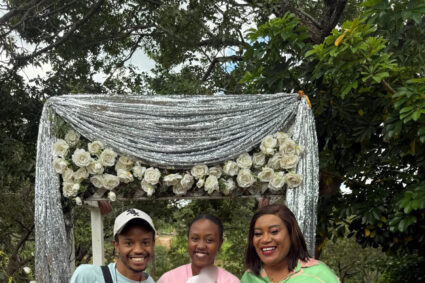
ActionAid Zimbabwe (AAZ) is a global justice federation working to achieve social justice, gender equality and poverty eradication.
The main objectives of this federation include helping people fight for the rights that they are denied such as the right to eat, the right to stay on their land, the right to education and the right to have a say in the decisions that shape their lives.
The organisation works in partnership with Community-Based Organisations (CBOs), National and International Non-Governmental Organisations (INGOs), Civic Society Organisations (CSOs) and like-minded organisations in and outside Zimbabwe.
ActionAid Zimbabwe’s key programme approaches include human rights-based approach, feminist leadership principles, advance women’s and youth rights, build collective power through partnerships and link local, national and international engagements.


AAZ under the ‘Towards Resilient Communities with Health, Equality and Safety for all (TORCHES) Project aims at creating communities where women and girls, including people with disabilities, are free from violence and can be able to speak for themselves.
The project aims to achieve this by fostering personal and community reflection about power relations, and amplifying girls’ voices in schools and communities in Shamva, Chitungwiza and Nyanga in partnership with Leonard Cheshire Disability Zimbabwe, Family Aids Caring Trust and Fawezi.
TORCHES Project uses the Tuseme (‘let us speak out’) methodology in schools, a participatory theatre-based approach which aims to create safe spaces for girls and boys to take action for gender equality and transform their school environment. Alongside this, the SASA! Together approach is also used to combat VAWG, working at all levels of the community to reduce violence against women and girls.
Last year, AAZ launched the Report on Taxation and Menstrual Hygiene Management Tools in Zimbabwe. The report came as a result of that access to menstrual products is a basic human right and is critical for wellbeing of women and girls. The world has recently begun to pay attention to the need for the provision of affordable menstrual hygiene management tools as one of the human rights necessities. As an effect, countries have started removing the ‘tampon or pink taxes’ on various menstrual hygiene products through various exemptions ranging from VAT, imports and income taxes.
Under the Zimbabwe Resilience Building Fund (ZRBF) Zambezi Valley Alliance (ZVA) implemented by AAZ and partners in Binga, Mbire and Kariba from 2016 to 2022, ActionAid Zimbabwe and partners supported smallholder farmers, especially women and youth to enhance their capacities, enable them to absorb, recover and adapt from the effects of shocks and stresses in a manner that protects livelihood, enhances recovery gains and support resilient sustainable agriculture.
AAZ supported by ActionAid Denmark and in partnership with three community-based organisations, namely Basilwizi Trust, Fambidzanayi Permaculture Centre and Green Governance Zimbabwe Trust last year also launched a Strategic Partnership Agreement (SPA) 2 programme. It focuses on youth agency in influencing an enabling environment for the implementation of feminism and green economic alternatives. This is an action that will consequently improve youth’s livelihoods and resilience to climate change-induced shocks and stresses and the programme will be eding in 2025.
The federation tackles several partnerships which also includes, the Dignified Lives and Decent Livelihoods for Young People project, in partnership with Katswe Sistahood recently they held a roadshow in Hopely as a way of campaigning against drug abuse.
ActionAid was founded as a charity in 1972 and in the 1990s they adopted a human rights-based approach to development whilst in 2003 that is when ActionAid Zimbabwe was established.



